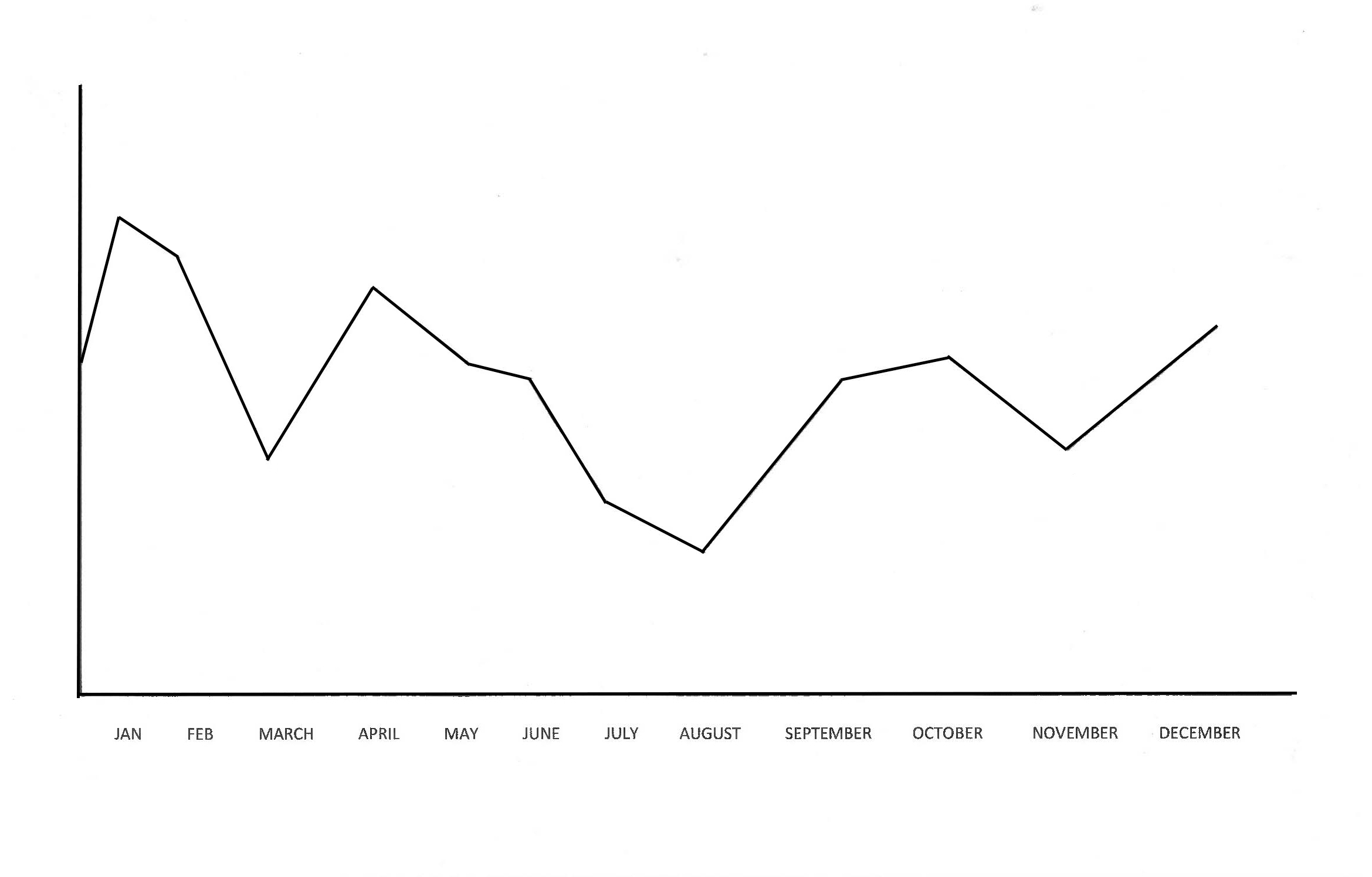
Seasonal Demand for Businesses is Very Predictable
Over the last 24 years we have seen a trend emerge in demand for small businesses. Demand rises and falls in a predictable way, and through mapping the monthly rates of buyer enquiry over the 19 years we have noticed clear trends emerge.
Traditionally the busiest months are January, February, April, September, October and early December. The quietest month is always August, and March, May, June, July and November are also quieter. October is a strange month for buyer enquiry because it’s usually quiet in the first weeks (long weekend and school holidays) but then (for unknown reasons) the second two weeks are usually very good (except in Victoria).
Aberrations such as elections will influence demand, but overall the increase and decrease in buyer demand has proven to follow the same pattern year after year.
Here is a graph which illustrates how buyer demand rises and falls during each year:
 Some cities will vary slightly in January. For example, demand is slow to build in January in Adelaide and Melbourne, but in Queensland demand starts from about the third day of January and rises. Another example of regional variation is the lull that occurs in Melbourne in the last week of October and the first week of November. We believe that this is caused by the Spring Racing carnivals and Melbourne Cup.
Some cities will vary slightly in January. For example, demand is slow to build in January in Adelaide and Melbourne, but in Queensland demand starts from about the third day of January and rises. Another example of regional variation is the lull that occurs in Melbourne in the last week of October and the first week of November. We believe that this is caused by the Spring Racing carnivals and Melbourne Cup.
What does this mean for business owners?
All this information points to the reality that each year there are “good” and “bad” times to be selling. Demand influences price, and therefore it is best to have a business on the market when demand is starting to peak.
Preparing to sell at a “Peak” time (such as February) can mean that not only will the business sell for a higher price, but is will (usually) sell more quickly. Conversely, trying to sell in June, July or August will be likely to see the business sell more slowly, and in trying to expedite the sale business owners often drop the price – and achieve an inferior outcome.
So it is a good idea to look at the buyer demand volumes and plan to sell when demand is at the highest levels.
What does this mean for business brokers?
Experienced business brokers plan ahead and actively work to gather new listings to have them ready for the annual buying “frenzy” that occurs in January/February. OK, … it’s not quite a frenzy, but over 25 years we have seen it proven over and over again, that this is the peak time of the year for sales, and those brokers with the best listings will make the most sales.
The demand for small Businesses rises and falls throughout the year. Benchmark Business Sales analyses data of the last 20 years and can notice trends.
Benchmark Business Sales and Valuations


